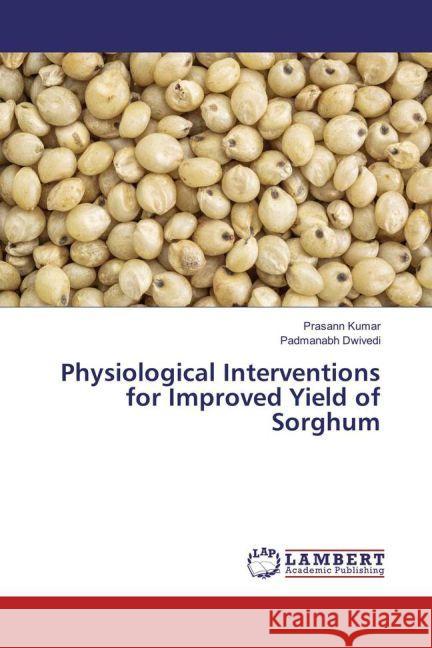Physiological Interventions for Improved Yield of Sorghum » książka
Physiological Interventions for Improved Yield of Sorghum
ISBN-13: 9783330085930 / Angielski / Miękka / 2017 / 64 str.
It is well known that due to impending climate change, there will be drastic effects on agricultural productivity. In order to increase food production with demand from an ever increasing population, integration of multiple sources to combat climate change will be necessary. Those affected the most by these changes will be underdeveloped and developing countries. In the face of global climate change, India, the second most populous country, must utilize all resources, whether genetic, technical, or agronomic to ensure adequate food and water production for the projected increase in population. Preparing for global climate change is possible through the collective efforts on a national and global level which will help alleviate any problem we encounter in the future. Sorghum is a C4 plant and has the capacity to tolerate heat, drought and salinity at a time, so it is called as dry land crop, and farmers prefer the cultivation of this crop under dryland farming. Physiological intervention along with biotechnological tools is a fruitful approach for significant improvement in yield of sorghum.











